Cosmology
-
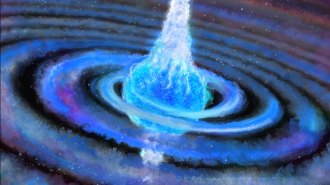 Cosmology
CosmologyAstronomers may have seen a star gulp down a black hole and explode
It took sleuthing through data collected by a variety of observatories to piece together the first firm evidence of a theorized cosmic phenomenon.
By Adam Mann -
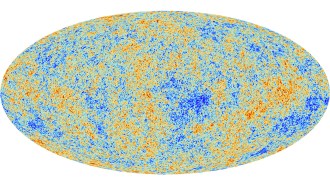 Cosmology
Cosmology‘Flashes of Creation’ recounts the Big Bang theory’s origin story
In ‘Flashes of Creation,’ author Paul Halpern tells the story of George Gamow , Fred Hoyle and their decades-long sparring match about the Big Bang.
-
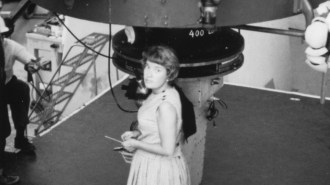 Space
SpaceVera Rubin’s work on dark matter led to a paradigm shift in cosmology
‘Bright Galaxies, Dark Matter, and Beyond’ tells the story of how astronomer Vera Rubin provided key evidence for the existence of dark matter.
-
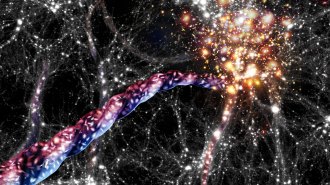 Space
SpaceCosmic filaments may be the biggest spinning objects in space
Filaments of dark matter and galaxies, which can stretch millions of light-years, might help astronomers figure out the origins of cosmic spin.
-
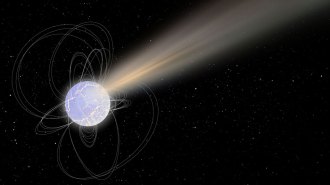 Space
SpaceFast radio bursts could help solve the mystery of the universe’s expansion
Astronomers used fast radio bursts for the first time to measure the Hubble constant in hopes of ending the debate on the universe’s expansion rate.
-
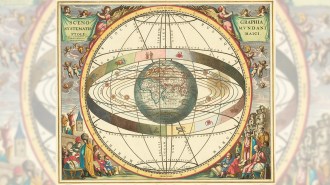 Cosmology
CosmologyPhysicists’ devotion to symmetry has led them astray before
If dark matter WIMPs are mythical, they join the ancient idea that the planets moved in circles.
-
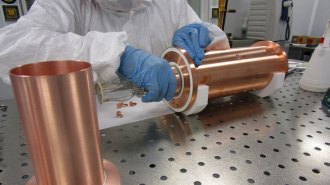 Cosmology
CosmologyThe dark matter mystery deepens with the demise of a reported detection
Early results from an experiment designed to replicate one that hinted that dark matter is made up of WIMPs came up empty-handed.
-
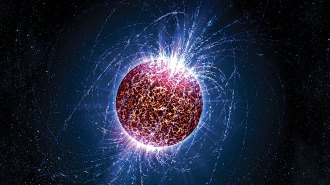 Cosmology
CosmologyEinstein’s theory of general relativity unveiled a dynamic and bizarre cosmos
Albert Einstein’s theory of general relativity foretold space-bending beasts, cosmic shock waves and mysterious forces.
-
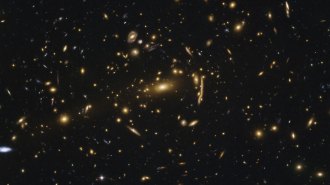 Space
SpaceDark matter clumps in galaxy clusters bend light surprisingly well
Cosmologists have found one more way to be confused by dark matter.
-
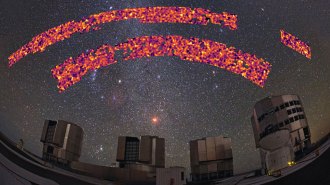 Cosmology
CosmologyScientists can’t agree on how clumpy the universe is
A measurement of 21 million galaxies finds a level of clumpiness that disagrees with estimates based on the oldest light in the universe.
-
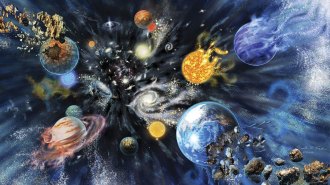 Cosmology
Cosmology‘The End of Everything’ explores the ways the universe could perish
As Katie Mack explains in The End of Everything, the universe’s demise could be disastrously violent or deadly calm.
-
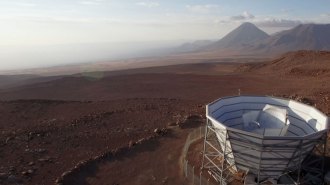 Cosmology
CosmologyDespite a new measurement, the debate over the universe’s expansion rages on
The Atacama Cosmology Telescope finds the universe is expanding more slowly than supernova observations suggest.